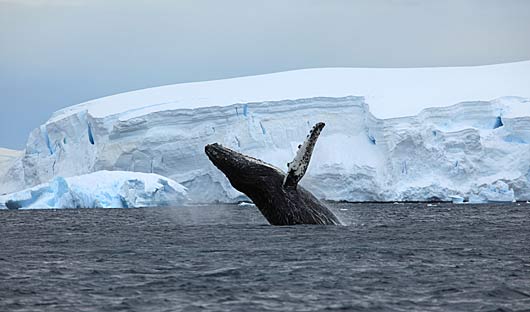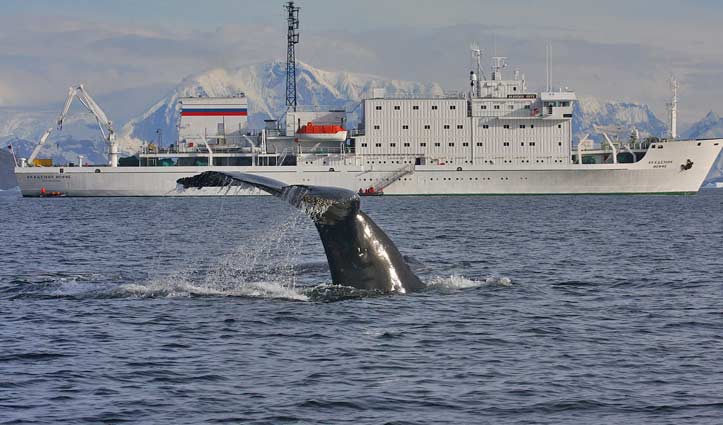07 Dec Antarctic Whales
Antarctic Whales

An Antarctic adventure to find and study the largest animals on the planet in the most remote and wild place on Earth. On special expeditions focused on marine mammals you will joined by several world-renowned cetacean (whale) and marine mammal specialists. They share with us unique underwater footage and scientific data, and help us interpret the behaviour, migration characteristics and feeding patterns of adult whales and their calves. For those with a passion for whales this unique voyage should not be missed. In addition to whales you should also see Weddell, crabeater, leopard and elephant seals and three species of penguin (Adelie, gentoo & chinstrap)
As part of this unique expedition, you will be taught methods for documenting whale numbers, help conduct photographic surveys to determine movement patterns and identify individual animals, and help locate and document the behaviour of whales that have been previously outfitted with satellite tracking devices.

March represents a critical time for whales in Antarctic waters as they feed on the vast krill swarms to build energy stores for either a long migration to tropical breeding grounds or to maintain their energy as they struggle to survive in the ice-choked waters that soon will encapsulate the region.
For humpback whales, there is growing evidence that while many whales migrate, some remain in areas that remain ice-free for long periods of time due to warming climates. We will cruise through several of the bays that are the focus of long-term and unique research projects to determine how the abundance of whales changes throughout the course of the Antarctic summer; possibly including the Lemaire Channel, Wilhelmina Bay and Petermann Island.
We will also search for the elusive and cryptic minke whale in the far reaches and ice-choked passes and bays where they spend most of their time. We will try to determine if there are patterns that emerge from the habitats where we find minke whales versus where they are absent.
One reason for why these whales may not occur in open water is because of the threat of the greatest ocean predator, the Orca. We will find Orcas as they patrol the coastal waters for seals, whales, and penguins that make up their diet. On the ship or in zodiacs you’ll try to follow killer whales as they hunt and will document the unique strategies and techniques they have adapted for different prey in Antarctica (e.g. creating a bow wave to wash seals off small icebergs).

There is the chance you will encounter others species of whale, including the world’s first and second largest mammals, the blue (1st), fin (2nd) & sei.
This expedition is truly unique in that it will allow you to experience the Antarctic and learn about the ecosystem and the great whales that are an icon of ocean health. As well, you will have the opportunity to work closely with leading researchers as they seek to learn about, conserve, and protect Antarctica and its inhabitants.
To book a voyage to Antarctica contact us on 1300 784 794 or email us at: contact@antarcticatravelcentre.com.au.

